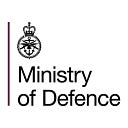20 years: Shining a spotlight on our LGBT+ Armed Forces personnel
This week marks 20 years since the ban on serving lesbian, gay and bisexual (LGB) personnel in the UK Armed Forces was lifted. Since this landmark ruling, LGB personnel have been welcomed and supported, and form a vital part of our Armed Forces.
To celebrate this pivotal anniversary, LGB service personnel have shared their stories: read below a range of experiences from before and after the ban was lifted.
Sgt Alastair Smith-Weston (Smudge)
Born and raised in Australia, Smudge joined the British Army in 1998, two years before the LGB ban was lifted. Since joining, he’s served abroad on operations in Northern Ireland and Bosnia.
He initially struggled to come to terms with his sexuality and remembers being asked during recruitment whether he had a boyfriend. Years later, when he was sure of himself, coming out to his battalion felt terrifying at first — but he says:
“I’ve had nothing but acceptance and support from the Army.”
After meeting his partner while deployed in Cyprus, he became the first service member to be married on a British base abroad. He has since worked to improve LGBT+ inclusion within the Army, as part of the Army LGBT+ forum. He was inspired by the 2013 public pardoning of Alan Turing to establish an annual LGBT+ veterans ball to thank those who served before the ban was lifted, giving them an opportunity to feel welcomed back into the Services.
He says:
“Take a look at London Pride, there are hundreds of us in the military and we are all treated as equals. You might have met a service member down the pub and they may not have told you they were LGBTQ+. We are the same as every other service member we serve alongside and we are treated with respect and understanding.”
Cpl Charlotte Davies
Charlotte joined the RAF 18 years ago and works as an Aircraft Engineer at RAF Benson. She is the co Vice Chair of the RAF LGBT+ Freedom Network, where she advises and educates the wider RAF community about LGBT+ matters.
She says:
“When I first joined up, someone’s sexuality wasn’t really spoken about but as time has gone on people have become more open. I prefer people asking questions as it’s the only way to educate people and get the right information out there. I have loved my time in the RAF, I have been all over the world with my job and RAF sport and made lifelong friends. It has been challenging at times and it has made me a better person.”
In regards to why it’s important to mark the anniversary and LGBTQ+ rights, she says:
“Even though I can be myself at work, there are still people elsewhere who are unable to be themselves and they carry that side of themselves locked up in a box. Being able to celebrate who they are is a massive thing. It’s important to keep fighting for that so that no one feels they have to lock their personality away because that’s exhausting.”
AB1 Thomas Smythe
Thomas joined the Navy three years ago as an Air Engineer, servicing aircraft including Wildcats. He was inspired to join up by his dad who was a Chief Stoker on a Navy ship.
He is active in several different Navy networks, including Compass, the Navy’s LGBT+ network.
He says:
“As a 20 year old bisexual, I feel lucky to have joined the Navy when it was legal and have never had any issues. I try to get involved in lots of networks because I’m confident about being bisexual but there are people who are still in the closet. I’m hoping that by me doing all this they can think that ‘actually, it is safe for me to be who I am.’
“If you are LGBT and worried about that affecting your career, it doesn’t. As long as you can do your job, that’s what matters. You’ll go to sea, you’ll go to shore and have some laughs and good times. They don’t care what your orientation is — you’re part of the Navy and that’s the key.’”
